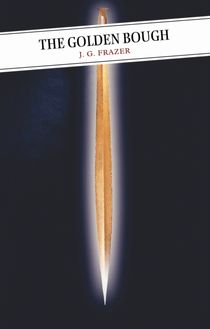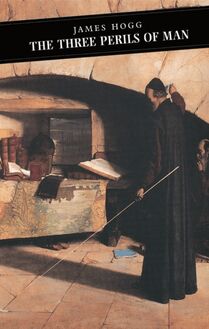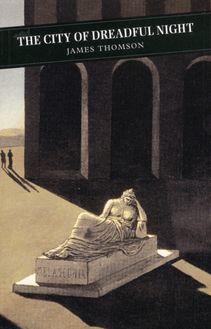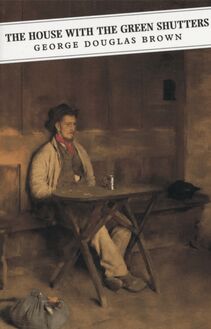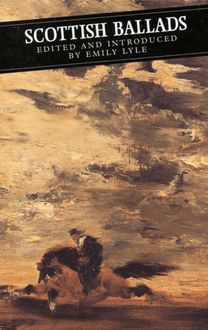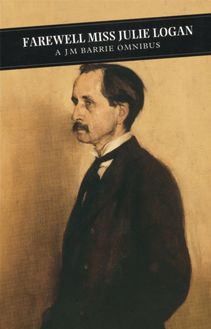Linmill Stories , livre ebook
107
pages
English
Ebooks
2010
Vous pourrez modifier la taille du texte de cet ouvrage
Obtenez un accès à la bibliothèque pour le consulter en ligne En savoir plus
Découvre YouScribe en t'inscrivant gratuitement
Découvre YouScribe en t'inscrivant gratuitement
107
pages
English
Ebooks
2010
Vous pourrez modifier la taille du texte de cet ouvrage
Obtenez un accès à la bibliothèque pour le consulter en ligne En savoir plus
Publié par
Date de parution
01 juillet 2010
Nombre de lectures
2
EAN13
9781847675453
Langue
English
Publié par
Date de parution
01 juillet 2010
Nombre de lectures
2
EAN13
9781847675453
Langue
English
Robert McLellan
LINMILL STORIES
Introduced by J.K.Annand
Contents
Introduction
1. The Pownie
2. The Kittlins
3. The Mennans
4. The Donegals
5. The Daftie
6. The Saubbath
7. The Robin
8. The Trap
9. The Ringlets
10. The Auchenheath Races
11. The Spree
12. A Drive to Lanark
13. The Trace Horses
14. The Shelties
15. The Shed
16. The Carlin Stane
17. Sunnyside
18. The Black Stallion
19. The Aipple
20. The Nest
21. The Creddle Knot
22. The Shuilfie
23. The Communion
24. The Falls Brae
Glossary
Introduction
Scots had been the accepted language, and in official use until the mid-sixteenth century. Its status began to decline with the Reformation, and it progressively lost prestige after the Union of the Crowns in 1603 and the Parliamentary Union in 1707. As a literary language it flourished in the work of Henry son, Dunbar and Lyndsay, and it never ceased to be used for poetry. Literary prose, however, virtually disappeared. It was kept alive by its use for dialogue in works of fiction by such authors as Walter Scott, John Galt, D.M. Moir, and J.L. Waugh. Even so, continuous and consistent Scots narrative prose is found in only one short story ( Wandering Willie’s Tale ) by Walter Scott, and in two tales ( Tod Lapraik and Thrawn Janet ) by R.L. Stevenson.
In our time Robert McLellan has brought a new dimension to writing in Scots. His poetry is of considerable merit, though small in quantity and little known. His long poem for radio, ‘Sweet Largie Bay’, however, won the Scottish Arts Council Poetry Award for 1956. He is best known for his plays, written between 1933 and 1967, and performed until this day. Jamie the Saxt and The Flouers o Edinburgh are the most popular and most frequently performed of his plays.
Our main concern, however, is with the twenty-four Linmill stories here printed. They were mostly written for radio and were broadcast between 1960 and 1965. A few were published in various small, mostly short-lived, magazines. In 1975 I learned from Robert McLellan that most of his stories had never been printed, so in issue number four of Lallans I published ‘The Robin’ and over the following years thirteen of the twenty-four stories were printed in that magazine. Robert was very co-operative. A script was always available, but if there were stories to hand from new or younger writers he was content that his story should lie over till the next issue. He insisted on reading proofs himself as he had found some editors were not familiar with his spelling of Scots. (He was also concerned about producers and actors who were unfamiliar with Scots pronunciation.) When I gave up the editorship I wrote to thank him for his kindness and generosity. With characteristic modesty he replied: ‘You keep thanking me for giving you my stories to print. It should be the other way round. And I do thank you for printing almost all those which had not before appeared in print. Without your help they would never have been presented in a form accessible to such of posterity as might be interested.’ Then as an afterthought which showed the humility of the man, he added, ‘I’m being gey bumptious.’
Six of his stories were published in booklet form in 1977 by Akros, but this is the first time the complete series has been made available.
There is always a danger that people reading fiction (or verse) will believe that the writer is being autobiographical. So far as the Linmill stories are concerned there is no doubt that a great deal of the narration is based on fact. In the days before maternity hospital facilities were readily available, young mothers customarily returned to the parental home for the lying-in. Elizabeth Hannah, wife of John McLellan, travelled from her home at Milngavie to have the birth at Linmill. The place is nowadays spelled Linnmill, but Robert McLellan always insisted that it was named after a mill for the dressing of lint (flax) and had nothing to do with the linns or falls of Clyde as he explains in the story ‘Sunnyside’. His grandparents worked the farm, typical of the area, for its fruit crops, and Robert did spend most of his holidays at their home. His experience of living in a rural area made a lasting impression on him, and when he married Kathleen Heys in 1938 they first rented and later bought the cottage at High Corrie in Arran in which Mrs McLellan still lives. For the rest of his life he made a living with his pen, eked out by the produce from his garden and his bee-skeps. Kathleen declares that Robert enjoyed working alone in his garden; it was the place where he did his thinking.
Another influential aspect of his holidays at Linmill was his love of ponies as described in ‘The Pownie’ and several other stories. When he was in his sixties and working on his authoritative topographical and historical book The Isle of Arran he suffered from angina pectoris ; to visit remote archaeological sites he took up horse-riding again, which made it possible for him to traverse difficult country.
For his poetry, his plays and his stories he deliberately chose to write in Scots. He did write two short stories in English, one of which was printed; the other he tore up because he realised that he was much more effective in Scots than in English. His Scots is firmly based on his native Lanarkshire, but is free of the tendency of dialect writers to exaggerate the spelling. McLellan’s spelling is remarkably consistent, and as is the case with his literary predecessors who wrote what might be considered a ‘standard’ Scots, his prose is easy to read.
The stories do give a remarkably accurate picture of life in rural Scotland in the early years of this century, and are indeed useful as a starting point for the changes that have taken place in social life. The fact that the young Robert spent his holidays in the home of his grandparents will not surprise anyone of my generation. In those days tradesmen were paid strictly for the hours worked. There was no holiday pay, and the only way children could be given a holiday was to send them for a spell with a grannie or an auntie. The stories remind us too that farming was at times labour-intensive and casual workers such as married women and even school-children were employed. The story of ‘The Donegals’ refers to the common use of low-paid imported labour, especially from Ireland. ‘The Daftie’ and some other stories recall the exploitation of mentally handicapped men and women, cheap and convenient for both the farmer and the public authority responsible for their care. Then there was the bothy system, but that too is no longer with us in these days of mechanised farming.
Strict Sunday observance today is found mainly in the northernmost Western Isles, but ‘The Saubbath’ accurately describes a situation that was common in lowland Scotland also. I vividly remember how my Lesmahagow grandfather gave me a flyting for whistling on the Sabbath.
In ‘The Auchenheath Races’ we have a description of how the young colliers took seriously their ‘pedestrian’ training for the races at the local sports day. Other pastimes mentioned in the stories include fishing, and throwing quoits, and we are told how the young laddies emulated their elders in a make-shift way with old horseshoes for quoits. Reading the Linmill stories reminds me of my own schoolboy holidays at my grandparents in Lanarkshire guddling for trout and on occasion fishing with the worm when allowed to accompany an uncle; doukin in the pools of the River Nethan; organised runs with our iron girds; getting hurls on carts and rick-lifters; herrying wasp bykes; whiles helping the farmer in the byre or feeding the calves in their paddock. Young Robert did all these things at Linmill too, but he has presented his multifarious activities in fictional form with a skill that arouses our interest and holds our attention.
As I noted earlier in this introduction, most writers confined their use of Scots to recording dialogue. McLellan conveys the speech of both children and adults accurately but he also has long swatches of description or narration where he uses a rich mixture of Scottish idioms and vocables. It is refreshing to note how he reverses the usual practice of English narration and reported Scots speech. In ‘The Black Stallion’ for example we have this passage:
Fred Jubb was warkin at the harness, but as sune as he tried to lowse the belly-band the stallion liftit its heid and tried to rise.
‘Will one of you sit on its head?’ askit Fred. He was an Englishman.
The substance of the stories however is not restricted to the activities and interests of the laddies. The affairs and thoughts of adults seventy-odd years ago also find a place. Following the work and observations of Rab’s grandfather will give an accurate account of fruit-farming in the area between Kirkfieldbank and Crossford where the practices are much the same today.
Several of the adults in these stories are memorable people. Rab’s grannie is a real ‘character’ and the giff-gaff with her husband, with the occasional plea from the boy, make an interesting study, illustrated almost entirely by conversation. Fred Jubb the horse-breaker, Tam Baxter the neighbouring farmer, Paddy and Kate O’Brien from Donegal, and the two contrasting ‘polis’ at Kirkfieldbank and Lanark, all help to widen the scope of these stories beyond an account of mere boyish on-goings.
The publication of this volume in the Canongate Classics will be welcomed by many admirers of Robert McLellan’s work. They will now be able to place alongside his work as poet and playwright the full extent of his achievement as a writer of short stories. There can now be no doubt that he will be recognised as the greatest writer of Scots prose in the twentieth century.
J. K. Annand
1
THE POWNIE
LINMILL WAS A FRUIT ferm in Clydeside, staunin a wee thing back frae the Clyde road aboot hauf wey atween Kirkfieldbank and Hazelbank, close
